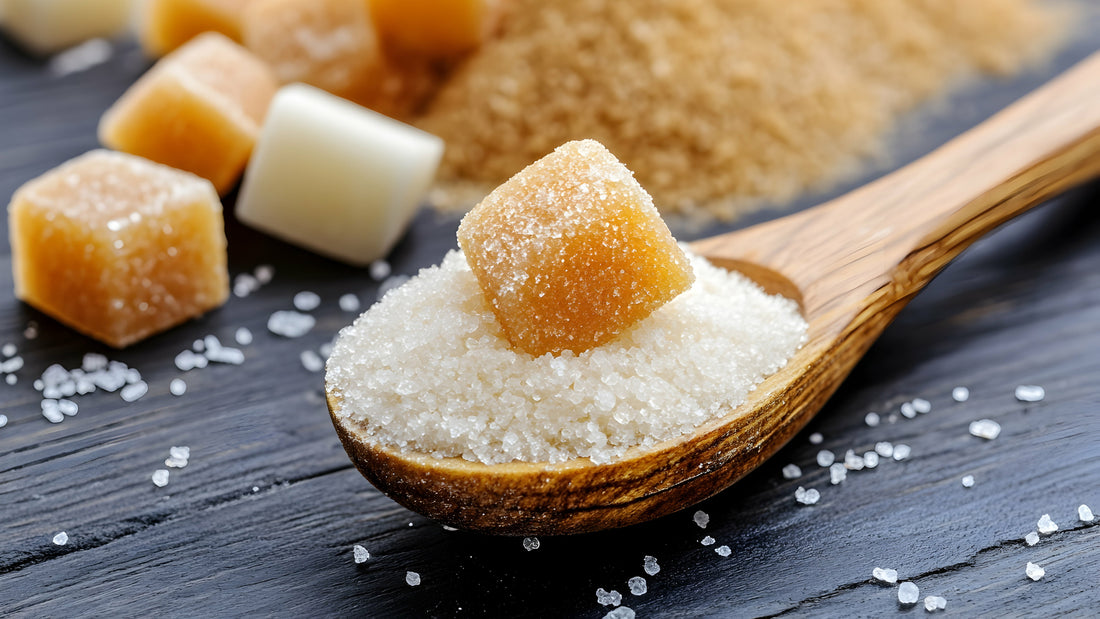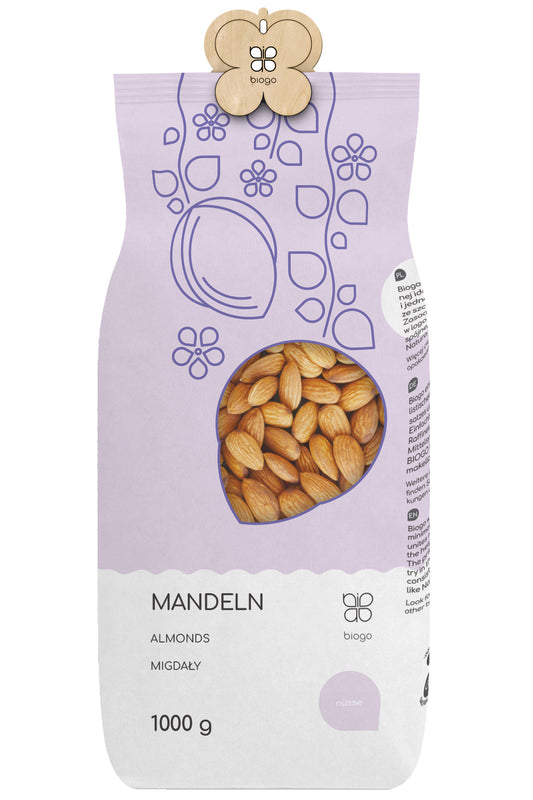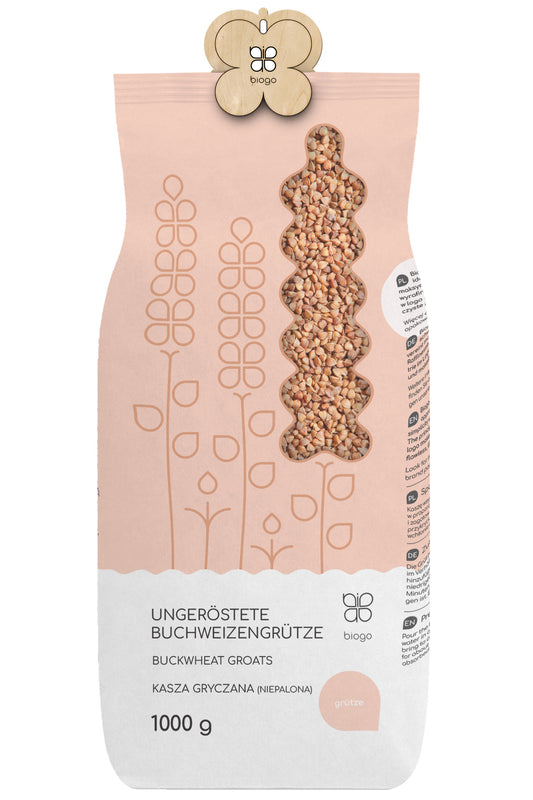How can sugar be replaced? The best natural substitutes and their effects on the body
Contents:
- Honey, Maple Syrup, Molasses – Sweetness from Nature
- Xylitol and Erythritol
- Stevia, Monk Fruit and Other Plant Wonders
- What Should I Choose? The Golden Mean is Moderation and Variety
Household sugar or sucrose has been the focus of nutritionists, doctors, and all health-conscious people for years. Its excess in the diet is linked, among other things, to insulin resistance, tooth decay, overweight, or chronic inflammation, which can lead to serious civilization diseases. In response to these dangers, more and more people are avoiding refined sugar and looking for more natural, healthier, and less processed alternatives. However, it should be remembered that not every "natural" sweetener is automatically good for everyone – the key lies in a conscious approach to sugar, knowledge about its properties, and its effects on the body and blood sugar levels.
Honey, Maple Syrup, Molasses – Sweetness from Nature
Among the most popular natural sugar substitutes are honey, maple syrup, and molasses. Honey not only tastes sweet but also contains antibacterial properties, enzymes, and antioxidants. It also soothes the throat and can strengthen the immune system – especially if it comes from a local apiary and has not been heated. Maple syrup contains minerals (especially manganese and zinc) and natural antioxidants. It is less sweet than sugar, which can be an advantage for many people. Molasses, a by-product of sugarcane or sugar beet refining, is the darkest and most distinctive of these substitutes – it contains a lot of iron, calcium, and magnesium and is therefore unique in terms of its nutritional value.
However, all these substitutes have one thing in common: they are calorie-rich and contain simple sugars, which means they can affect blood sugar and insulin levels. Although they are a better choice than white sugar, they should therefore be used in moderation and considered as a supplement rather than a dietary staple.
Xylitol and Erythritol
Xylitol (birch sugar) and erythritol are sugar alcohols that have become popular as low-calorie alternatives to conventional sugar. Xylitol provides about 40% fewer calories than sugar and has a low glycemic index, so it does not cause sudden blood sugar spikes. In addition, it has anti-cavity properties and can support oral health, which is why it is a common ingredient in natural toothpastes and sugar-free chewing gum. Erythritol, on the other hand, is practically calorie-free – the body does not metabolize it and therefore does not raise glucose or insulin levels. Another advantage of erythritol is that it does not ferment in the gut, minimizing the risk of bloating and digestive discomfort.
However, excessive consumption, especially in sensitive individuals, can have a laxative effect and cause bloating with xylitol. Therefore, it is recommended to introduce these sweeteners gradually and observe the body's reaction. For many people, however, they are a safe and effective way to reduce sugar without giving up the enjoyment of sweetness.
Stevia, Monk Fruit and Other Plant Wonders
Stevia, an extract from the leaves of the South American Stevia rebaudiana plant, is one of the most commonly chosen plant-based sweeteners without calories. Its sweet glycosides do not raise blood sugar levels, contain no calories, and are heat-stable – therefore it can also be used for cooking and baking. Monk fruit or Luo han Guo is a less known but promising alternative. Its sweetness comes from mogrosides, natural compounds with antioxidant properties that do not affect blood sugar. Both sweeteners are especially appreciated by people with diabetes, insulin resistance, and those on ketogenic or low-carb diets.
Unfortunately, not everyone likes the characteristic taste of stevia – some people perceive a bitter, licorice-like note in it. The same applies to monk fruit. The fruit is hard to obtain and its price is higher than other substitutes. However, it is worth trying – many products on the market, for example, combine stevia with erythritol, which improves the taste and eliminates the bitter aftertaste, thus achieving a pleasant, natural sweetening effect.
What Should I Choose? The Golden Mean is Moderation and Variety
There is no universal sugar substitute suitable for everyone and everything. The choice of the right sweetener depends on our lifestyle, health, individual needs, and taste preferences. For active and healthy people, honey or maple syrup are good as a supplement to morning porridge. People on a low-carb diet or with insulin resistance can turn to erythritol, stevia, or monk fruit. Another interesting strategy can be to mix different substitutes, e.g., honey with erythritol, to achieve the desired taste with a lower glycemic load.
It is important to remember that even the healthiest sweetener should not be an excuse for excessive sweet consumption. The body primarily needs nutrients, fiber, and balance. Therefore, the most effective change is not just: "What do you sweeten with?" but: "How much do you sweeten?" – and whether you really need it. Mindful eating, limiting sweetened products, and opting for natural flavors are the best ways to health, energy, and well-being.
THE PUBLISHER'S CHOICE
Dried dates 1 kg BIOGO
- €4,21
€4,95- €4,21
- Unit price
- / per
Almonds 1 kg BIOGO
- €11,69
€13,75- €11,69
- Unit price
- / per
Peeled sunflower seeds 1 kg BIOGO
- €3,04
€3,57- €3,04
- Unit price
- / per
Dried organic mango 400 g BIOGO
- €10,99
- €10,99
- Unit price
- / per
Dried White Mulberries 500 g ORGANIC
- €5,84
€6,87- €5,84
- Unit price
- / per
Popcorn (corn kernels) organic 1 kg BIOGO
- €5,84
- €5,84
- Unit price
- / per
Organic Ground Turmeric 500 g BIOGO
- €5,92
- €5,92
- Unit price
- / per
Milk thistle seeds 1 kg BIOGO
- €3,99
- €3,99
- Unit price
- / per
Organic cashew nuts 1 kg BIOGO
- €19,99
- €19,99
- Unit price
- / per
Unpeeled buckwheat groats 1 kg BIOGO
- €2,81
€3,31- €2,81
- Unit price
- / per







































































































































